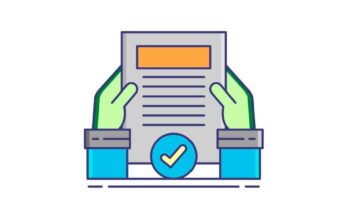QUICK LINKS
3.2.1 Ongoing Monitoring of Animal Welfare and Behaviour Change
3.2.2 Participatory learning and reflection and adaptation of community engagement plans
3.2.3 Evaluation of change agent’s performance
3.2.1 Ongoing Monitoring of Animal Welfare and Behaviour Change
Throughout the course of the project, CCAs should be undertaking participatory monitoring of animal welfare and behaviour change with target peer groups using agreed upon indicators. Monitoring of changes in animal welfare can be achieved by repeating the Animal welfare transect walk every one to three months. The project should also be carrying out monitoring in line with the previously determined frequency.
It is important to ensure that whatever monitoring indicators, methods, and frequencies are selected, that results can be used to promote reflection, learning and adaptive management for both community members and the project/supporting organization throughout the project. It is therefore important to ensure that opportunities for CCAs and their target peers to reflect on monitoring results to:
- Support reflection, learning about successes and challenges, and changing trends.
- Promote transparency and accountability in terms of what the project is achieving.
- Improve motivation for change through a celebration of successes and identify where more effort or adaptations in action plans or community engagement strategies are needed.
3.2.2 Participatory learning and reflection and adaptation of community engagement plans
Collective reflection and experience are a powerful tool for learning and change, and effective learning and reflection processes can foster motivation and a sense of self-efficacy and ownership of change amongst CCAs and their target peers. Reflection and learning should at the very least be incorporated into regularly scheduled meetings with groups of change agents, and when you or change agents meet with their target peer groups. As part of the reflection and learning process, monitoring results should be shared and discussed with CCAs and their target peers as available, and action plans adapted as needed.
Conducting regular site visits and meeting with CCAs and their peer network at a lower frequency throughout the course of the project (e.g. quarterly) is recommended to enable the project to:
- Facilitate participatory learning and reflection sessions to enable community members to learn from each another.
- Conduct trainings or build capacity as needed amongst members of the animal owning community.
- Gather first-hand insights on their successes and challenges, and changes in their awareness and motivation to make animal welfare improvements.
- Gauge where the CCA’s target peer groups are in terms of their progress through the stages of change so you can support CCAs in adapting their engagement as needed.
- Explore barriers and motivators to the adoption of desired behaviours which require additional resources or support to address.
It is important to remember that in almost all successful change efforts, emotions rather than facts are the most effective agents of change [20]. It is therefore important that reflection and learning opportunities are created to enable target peer groups to feel something about the changes they are making and experience the benefits that the adoption of desired behaviours brings to their lives and the lives of their animals [20].
We recommend using the adult learning cycle whenever feasible as it focuses on facilitating processes for reflection and learning by focusing on:
- Direct Experiences: drawing on participants personal experiences related to animal welfare improvements and behaviour change, and/or by conducting participatory learning and action activities, participatory demonstrations or presentations through which participants experience/feel new information for discussion and learning.
- Facilitating Reflection: helping participants think about how experiences make them feel, analyse new information, and develop their own ideas about the specific topic or issue.
- Generating Conclusions: encouraging participants to generalize lessons learned to draw broad conclusions for themselves about their experiences.
- Promoting Application: enabling participants to visualize how they may apply their experience/new knowledge in their own lives in the future.

Figure 48: Reflection and Learning Process for Adults - Image adapted from:[65]
Incorporating reflection and learning through periodic meetings with CCAs and their target peers to discuss and reflect on progress and monitoring results is useful for the following reasons:
- Promotes accountability and improves community members’ commitment to adopting desired changes. Specifically, seeking voluntary commitments in these public forums and/or seeking group commitments can improve adoption of desired behaviours [31].
- Generates peer pressure and peer motivation to influence individual actions, as well as opportunities for building social networks amongst peers to support change.
- Generates increased knowledge about actions which work or don’t work in their action plans, leading to corrective action or improvement.
- Better understand the barriers and motivators to adopting desired behaviours, and identify additional resources, support, and/or capacity building needs to address them.
- Creates a sense of shared responsibility for dealing with challenges.
- Promotes greater understanding of their animals’ welfare and their related behaviours which support or hinder its improvement.
It will enable you and the project to:
- Gather insights on participants’ stages of change, as well gauge CCAs understanding of their target peers’ stages and change and discuss support needs and plans for addressing them.
- Assess CCAs progress in implementing activities and achieving desired results in relation to their Community Change Agent Personal Action Plan and support them in adapting their community engagement techniques or action plans as needed.
- Support CCAs learning and reflection about their own behaviour change which can be applied to strengthen their engagement with their target peer groups.
- Create opportunities for CCAs to learn from each other’s successes and failures and support each another in making progress.
- Create opportunities for the perspectives of CCAs of different genders and other marginalized groups to be heard and understood by CCAs with social identities that are less marginalized to foster deeper understanding and empathy for different groups’ lived experiences. This will enable CCAs to apply their understandings to more effectively with all of their target peers, as well as model new ideas, norms, and behaviours that that can serve to transform social norms, and promote greater equality more broadly.
- Create a safe space to check in and discuss any safety or security issues or concerns CCAs and their peers may have regarding engagement with the project and enable you to take responsive safeguarding actions.
Consider using the Project Action Tracker provided as a facilitator resource to document key insights and actions for follow up that emerge from meeting and site visits and support the project in planning and providing coordinated support.
In addition, reflection and learning sessions can help you identify when behaviours are not being adopted because of unanticipated barriers to adoption which are beyond the scope of the project to address. In such cases it may be necessary to change targets and identify new welfare issues and associated behaviours to change instead. Through this process, you may also find that some target peers are not progressing through the stages of change despite the project’s best efforts to support them to do so. In such cases, it is recommended that the project and CCAs not spend too much time and energy trying to push those individuals to change when they are not ready to do so. It is normal for there to be early and late adopters of change, and energy is best spent supporting the early adopters. These early adopters can be helpful to motivating late adopters by sharing their reflections on their experiences and demonstrating that change is possible.
It can also be helpful to conduct exposure visits between different project sites to promote cross fertilization of knowledge and ideas between CCAs and target peer groups in different areas. This can be particularly useful when progress through the stages of change becomes stalled or relapse is observed, as these experiences can enhance motivation and generate new ideas about potential solutions. Consider using the Open ended story telling (T24c) tool for generating ideas possible solutions when they face challenges in adopting desired behaviours.
3.2.3 Evaluation of change agent’s performance
It is helpful to evaluate change agent’s performance and skills periodically throughout the implementation stage to support their capacity to desired communities’ achievement of desired outcomes.
It is recommended that such processes for evaluation include:
- CCA Self-Assessment: self-assessments should promote self-reflection and learning and enable CCAs to identify their own capacity building support needs, as well as discuss their overall satisfaction with the project/your supporting organization.
- Evaluation by Community Peers: peer evaluation involves gathering feedback from CCA’s target peers’ groups on their experience working with CCAs in terms of their availability/responsiveness, capability/core competencies, and ethics including but not limited to non-discriminatory support of all members of their peer group. Creating mechanisms for communities to provide feedback promotes accountability and transparency by giving community members a voice and chance to influence issues which affect their lives and engagement with the project.
- Evaluation by the Project: the project should assess core competencies of CCAs in accordance with their training plans, as well as overall progress based on CCAs’ reporting and results from monitoring. In addition, it is important the project ensures CCA’s are not discriminatory in their implementation of personal action plans, nor show preference to the views and life experiences of some groups over others (e.g. gender or other minority or vulnerable status). For example, CCAs should be engaging each member of their target peer group in ways that seeks to understand and validate their experience rather than expecting them to behave and/or perform in the same way as other members. Your regularly scheduled community visits can provide useful opportunities to observe CCAs competencies and how they interact with their peers.
Refer to CCAs’ training plans and the recommended resources below to support CCA performance evaluations.
Feedback on evaluations should be provided to CCAs to ensure transparency, as well as to communities in terms of any actions taken in response to their feedback on CCAs. The project is responsible for working with CCAs to give them an opportunity improve poor performance and/or provide additional training to address gaps in capacity as needed.
Tools and resources helpful to supporting this step include:
PLA Tools
T24c. Open ended story telling
Facilitator Resources
Ideas for Structuring Meetings with Change Agents to Promote Reflection and Learning
Community Change Agent Personal Action Plan
Community Visit Record and Report Template
Project Action Tracker

